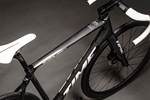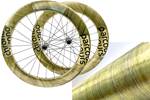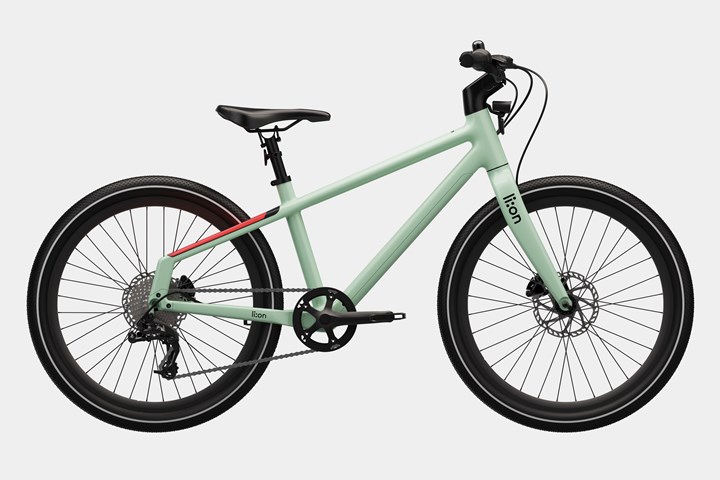KraussMaffei and partners develop sustainable, safe and stylish children’s bike
The Lion Bike is a German-made, injection molded bicycle with 40% recycled carbon fibers with zero scrap and enabling 67% lower CO2 emissions during production.
KraussMaffei (Parsdorf, Germany) and partners have developed a high-performance children’s bike emphasizing a cool design, new safety features and sustainable production. The new Lion Bike by former professional cyclists Marcel Kittel and Tony Martin features a frame and fork made of a high-performance polymer with recycled carbon fibers produced by specialist Weber Fibertech (Markdorf, Germany).
The frame and fork are made with polyamide 6 (PA6) and 40% recycled carbon fibers. Thanks to these durable and 100% recyclable materials, the main components can be produced using a state-of-the-art injection molding process.
In particular, Weber uses the KraussMaffei MX 1600 injection molding machine in combination with the water injection molding (WIT) process, which uses technology from PME fluidtec (Mahlberg, Germany), a specialist with more than 100 successful WIT processes on the market. WIT is said to be ideal for producing functionally complex, highly integrated plastic components with hollow body construction.
This is the first time PME used the mass back-pressure method in the WIT process for bicycle frames. The melt displaced by the water is pressed back into the plasticizing unit and reused in the next shot for the frame or fork. This means that there is no waste during production, which in turn saves material during production and is beneficial for the carbon footprint. According to KraussMaffei, when comparing the production of Lion Bikes with conventional aluminum frames and forks, CO2 emissions are 67% lower for each bike produced. Moreover, component production in Germany means a shortened supply chain and transport route.
“The technical performance of the MX series has won us over, and there’s no turning back,” Friedbert Schmitt, CEO of Weber Fibertech, says. “In particular, we were impressed by how, with a screw diameter of 120 millimeters, injection was carried out at 300 millimeters/second, thus achieving a large volume with rapid mold filling."
Safety-wise, Lion Bikes provide added visibility. They have a special paint that makes the frame glow and an unusually large lighting system with daytime running lights that is completely integrated into the frame.
First finished Lion Bikes are expected to be available on the market beginning spring 2024.
“With the processing of high-performance polymers and recycled carbon fibers and the production made in Germany, we are sending an important signal in the direction of sustainability in the bicycle industry,” Schmitt, adds.
Related Content
-
Plant tour: Middle River Aerostructure Systems, Baltimore, Md., U.S.
The historic Martin Aircraft factory is advancing digitized automation for more sustainable production of composite aerostructures.
-
Plant tour: Daher Shap’in TechCenter and composites production plant, Saint-Aignan-de-Grandlieu, France
Co-located R&D and production advance OOA thermosets, thermoplastics, welding, recycling and digital technologies for faster processing and certification of lighter, more sustainable composites.
-
Recycling hydrogen tanks to produce automotive structural components
Voith Composites and partners develop recycling solutions for hydrogen storage tanks and manufacturing methods to produce automotive parts from the recycled materials.
















.jpg;maxWidth=300;quality=90)
